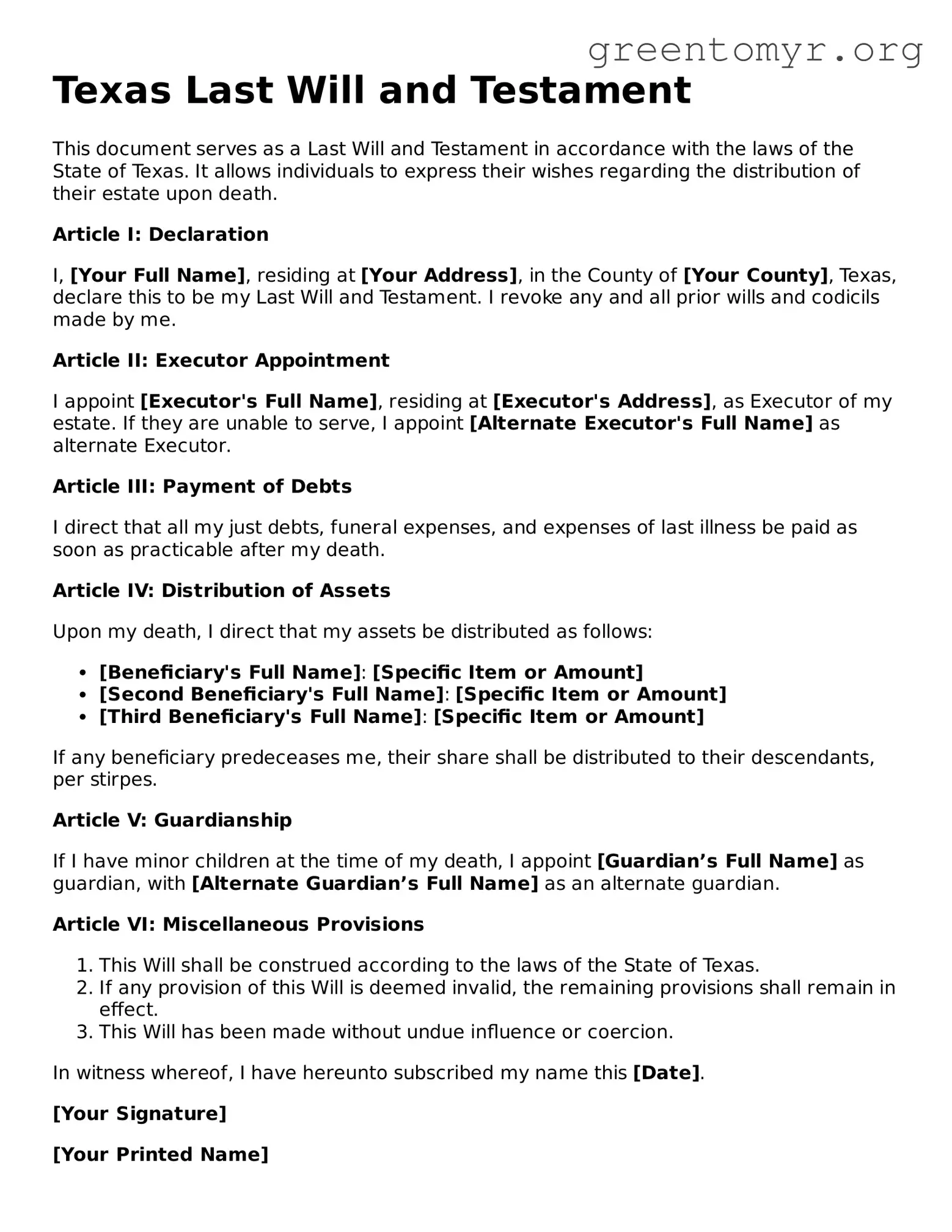Texas Last Will and Testament
This document serves as a Last Will and Testament in accordance with the laws of the State of Texas. It allows individuals to express their wishes regarding the distribution of their estate upon death.
Article I: Declaration
I, [Your Full Name], residing at [Your Address], in the County of [Your County], Texas, declare this to be my Last Will and Testament. I revoke any and all prior wills and codicils made by me.
Article II: Executor Appointment
I appoint [Executor's Full Name], residing at [Executor's Address], as Executor of my estate. If they are unable to serve, I appoint [Alternate Executor's Full Name] as alternate Executor.
Article III: Payment of Debts
I direct that all my just debts, funeral expenses, and expenses of last illness be paid as soon as practicable after my death.
Article IV: Distribution of Assets
Upon my death, I direct that my assets be distributed as follows:
- [Beneficiary's Full Name]: [Specific Item or Amount]
- [Second Beneficiary's Full Name]: [Specific Item or Amount]
- [Third Beneficiary's Full Name]: [Specific Item or Amount]
If any beneficiary predeceases me, their share shall be distributed to their descendants, per stirpes.
Article V: Guardianship
If I have minor children at the time of my death, I appoint [Guardian’s Full Name] as guardian, with [Alternate Guardian’s Full Name] as an alternate guardian.
Article VI: Miscellaneous Provisions
- This Will shall be construed according to the laws of the State of Texas.
- If any provision of this Will is deemed invalid, the remaining provisions shall remain in effect.
- This Will has been made without undue influence or coercion.
In witness whereof, I have hereunto subscribed my name this [Date].
[Your Signature]
[Your Printed Name]
We, the undersigned witnesses, hereby declare that we witnessed the signing of this Last Will and Testament by [Your Full Name] on [Date], and that he/she is of sound mind and body.
Witness 1: ____________________
Witness 1 Printed Name: ____________________
Witness 2: ____________________
Witness 2 Printed Name: ____________________
